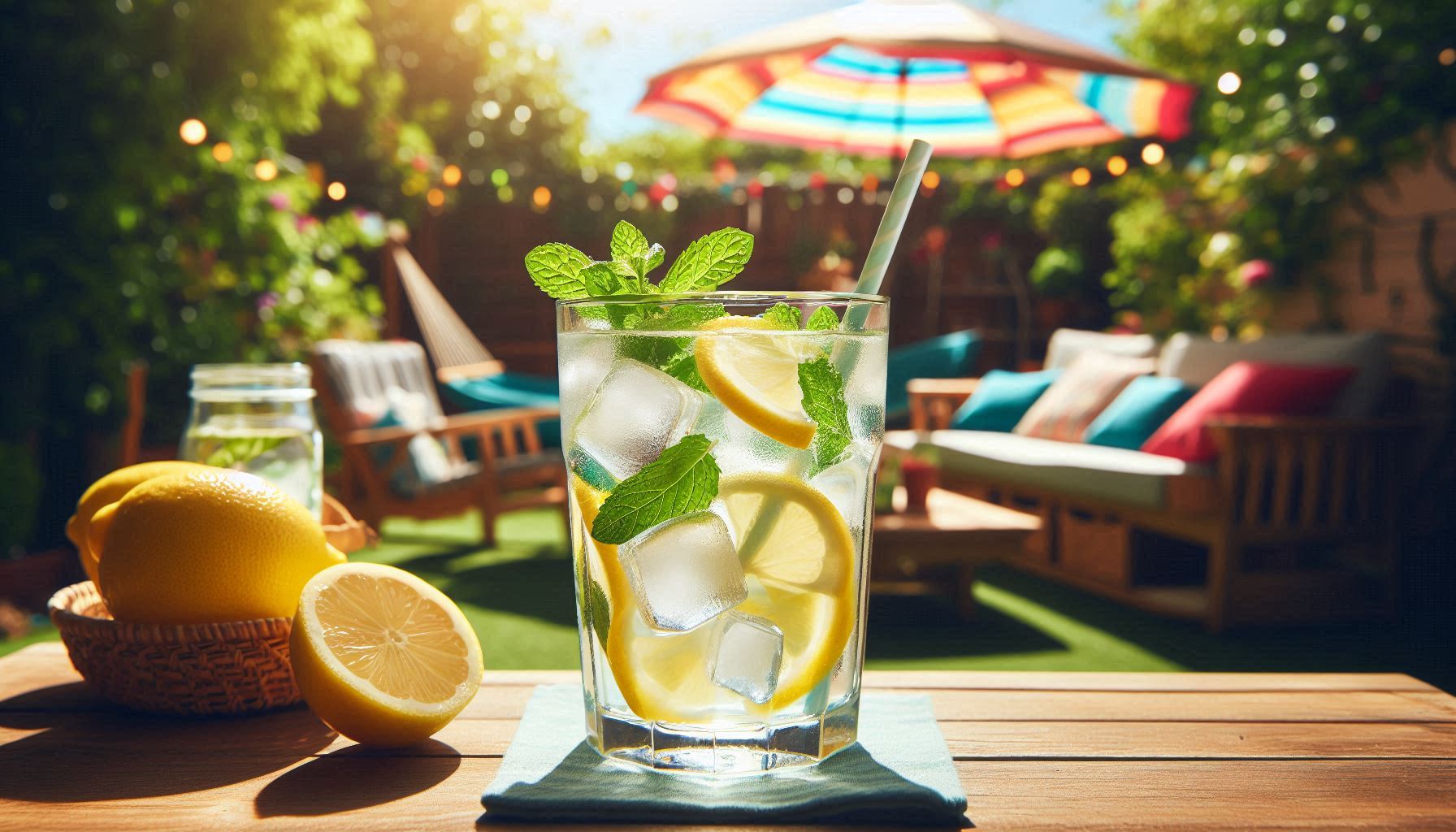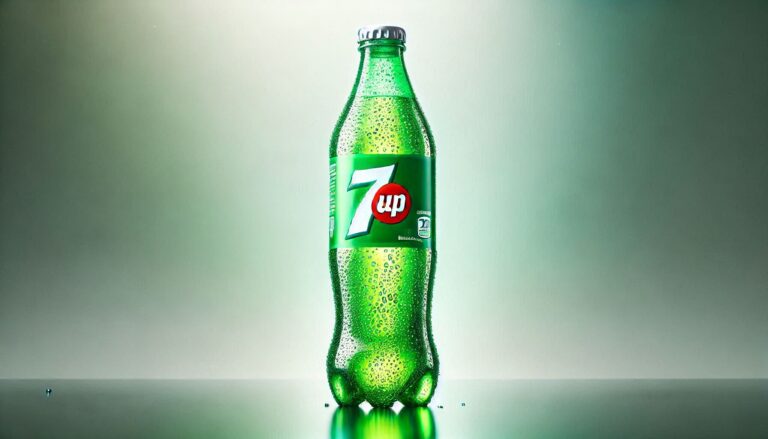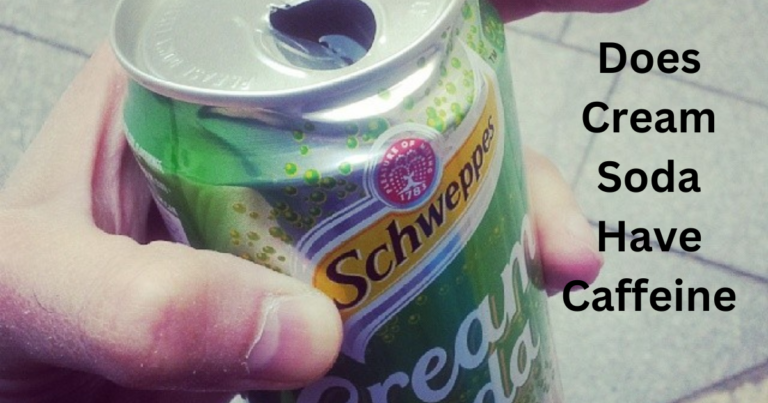Does Lemonade Help with Dehydration? | Healthy Hydration
We’ve all been there – parched, tired, and craving something refreshing. On a hot summer day or after a long workout, grabbing a glass of lemonade feels like the perfect solution. But can lemonade actually help with dehydration, or is it just a tasty treat that temporarily quenches thirst without providing essential hydration? Let’s dive into the science behind hydration, how lemonade affects the body, and see if this citrusy favorite can stand up to water and other hydrating drinks. By the end of this blog, you’ll know exactly when lemonade is your hydration friend and when it’s better to stick to plain water or electrolyte solutions to prevent dehydration.
Understanding Dehydration

Dehydration occurs when the body loses more fluids than it takes in, disrupting the normal balance of bodily functions. The body is approximately 60% water, and nearly every system in the body depends on water to function properly. When we lose fluids through sweat, urination, or other bodily processes and don’t replace them, the balance is disturbed. This causes dehydration.
Nescafe vs Bru: 6 Insights to Help You Choose the Best Coffee
How Dehydration Impacts the Body:
- Cellular Function: Water is essential for transporting nutrients to cells and removing waste. Without sufficient water, cells can shrink, affecting cellular processes and leading to fatigue and poor performance.
- Temperature Regulation: Water helps regulate body temperature. Dehydration can make it more difficult to sweat, causing an elevated body temperature that can lead to heat exhaustion or heat stroke.
- Cognitive Function: Even mild dehydration can affect cognitive function, causing issues with memory, focus, and mood. The brain is sensitive to water loss and can become sluggish as a result.
Common Causes of Dehydration:
- Sweating: Physical activity, heat, or fever can lead to excessive sweating, leading to significant fluid loss.
- Illness: Vomiting, diarrhea, and fever all result in the loss of fluids and electrolytes, exacerbating dehydration.
- Inadequate Fluid Intake: Simply not drinking enough water during the day or relying on dehydrating beverages (like caffeinated or alcoholic drinks) can lead to dehydration.
What is Lemonade Made Of?

Lemonade is made of three primary ingredients: water, lemon juice, and sweetener. Let’s look at each one’s role in hydration.
- Water: The most important component of lemonade for hydration. Water is the key ingredient that replenishes lost fluids in the body. It helps maintain the balance of fluids in the body’s tissues and organs.
- Lemon Juice: Lemons are packed with vitamins, especially vitamin C, and minerals like potassium. Vitamin C acts as an antioxidant, protecting cells from damage, while potassium helps maintain the fluid balance and supports nerve and muscle function.
- Potassium’s Role in Hydration: Potassium is a key electrolyte that helps regulate the water content in cells. A proper balance of potassium is essential for effective hydration, ensuring that fluids are absorbed and retained in the body.
- Vitamin C: Though vitamin C in lemonade doesn’t directly aid in hydration, it plays a crucial role in boosting the immune system, helping to protect the body during periods of dehydration or illness.
- Sugar: Sugar is often added to lemonade to enhance flavor, but it can have a dual effect on hydration. Small amounts of sugar can help the body absorb water by facilitating the transport of glucose and sodium into cells. However, large amounts of sugar can worsen dehydration by drawing water into the digestive tract, which can further decrease the amount of fluid available to the body.
Can Lemonade Hydrate the Body?

The simple answer is yes, lemonade can help hydrate the body, but the degree to which it does so depends on how it is made and consumed.
- Water Content: Lemonade contains a significant amount of water, which is the primary component responsible for hydration. As the body needs water to function properly, any beverage that provides water helps replenish fluid levels.
- Electrolytes: While lemonade does provide potassium from the lemon juice, it lacks sodium, a critical electrolyte that helps the body retain water. Sodium helps prevent the rapid loss of fluids by encouraging water to stay inside the body’s cells. This is why drinks like sports drinks, which contain both sugar and sodium, are often better for rapid hydration in cases of intense exercise or heat.
- Effect of Sugar: The sugar content in lemonade can be both beneficial and harmful. When consumed in moderation, sugar can enhance the absorption of water and sodium into cells, improving hydration. However, excessive sugar can draw water from the body’s cells into the digestive tract, causing further dehydration, especially when consumed in large quantities.
Comparing Lemonade to Plain Water

Plain water is the gold standard for hydration. It has no calories, no sugars, and no additives. It works efficiently to replenish lost fluids and maintain hydration without any side effects.
- Pros of Water:
- It is absorbed rapidly by the body and replenishes fluid levels directly.
- It maintains the balance of electrolytes and supports the body’s overall functions without any additives.
- It is the safest option for addressing dehydration, especially in severe cases.
- Cons of Water:
- While it’s the most effective hydrator, some people struggle to drink enough water throughout the day due to its lack of flavor. This is where lemonade and other beverages can help encourage fluid intake.
When Water is the Better Choice
- Severe Dehydration: If you’re experiencing heat exhaustion or significant fluid loss due to illness, plain water is the most effective solution for rapid hydration.
- Long-Duration Exercise: If you’re engaging in prolonged physical activity, water is the best option, especially when combined with a balanced diet that replenishes electrolytes.
Lemonade and Electrolytes

Electrolytes like sodium, potassium, calcium, and magnesium are essential for hydration. These minerals help regulate the movement of water in and out of cells and are critical for maintaining the body’s fluid balance.
- Potassium: Found in lemon juice, potassium helps the body absorb water and maintain proper fluid balance.
- Sodium: Unlike water, lemonade does not provide sodium, which is why it may not be as effective for hydration during intense physical exertion or extreme heat. Sodium is essential for maintaining fluid balance in the body, and its absence in lemonade can make it less effective than drinks designed specifically to replenish electrolytes.
How to Make Lemonade More Hydrating
- Add a Pinch of Salt: To enhance lemonade’s hydrating effects, add a small amount of salt. This mimics the electrolyte balance found in sports drinks, which can help improve water retention and prevent dehydration.
- Include More Potassium-Rich Ingredients: You can also consider adding other ingredients rich in potassium, such as coconut water, to further boost the electrolyte content of homemade lemonade.
When is Lemonade a Good Hydration Choice?

Lemonade can be an effective hydrating beverage in certain situations. Here’s when it works best:
- Mild Dehydration: After light physical activity or exposure to the sun, lemonade can help replenish fluids and electrolytes, offering a refreshing option to encourage continued hydration.
- Flavored Hydration: For those who struggle to drink plain water, lemonade offers a flavorful alternative that can help increase overall fluid intake.
When to Avoid Lemonade for Hydration
- Severe Dehydration: In cases of heat stroke, intense exercise, or illness, plain water or electrolyte solutions should be prioritized to address the body’s immediate need for rehydration.
- Diabetes or Blood Sugar Concerns: The sugar content in lemonade can cause a spike in blood sugar levels, which is a concern for those managing diabetes or other conditions related to blood sugar regulation.
Homemade vs. Store-Bought Lemonade

Making your own lemonade gives you control over the sugar content and allows you to avoid added preservatives or artificial flavors. Homemade lemonade can be adjusted to suit your hydration needs better than store-bought varieties.
- Healthier Homemade Lemonade:
- Use natural sweeteners like stevia or honey to reduce sugar intake.
- Add fresh herbs like mint or basil to boost flavor without relying on excess sugar.
- Add a pinch of salt to enhance electrolytes, improving the drink’s ability to hydrate effectively.
Conclusion

Lemonade can be a refreshing and beneficial drink for hydration, especially when made at home with minimal sugar and additional electrolytes. While it’s not a complete replacement for water, it can serve as a pleasant alternative for mild hydration needs. Just remember, when you’re dealing with severe dehydration or intense physical activity, plain water or electrolyte solutions are your best bet. Always listen to your body’s hydration needs and adjust your intake accordingly.






